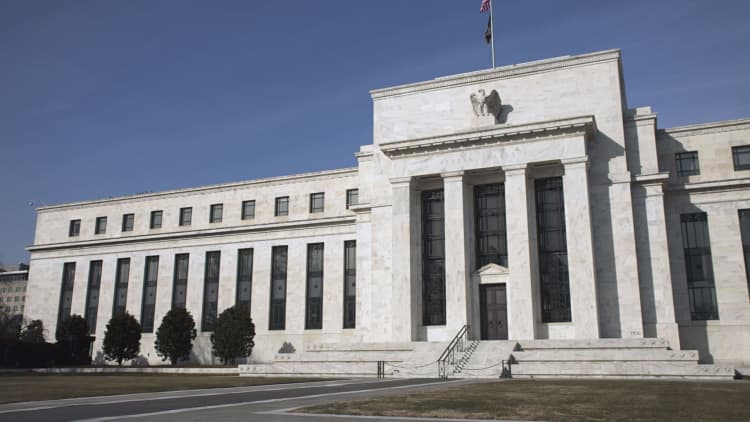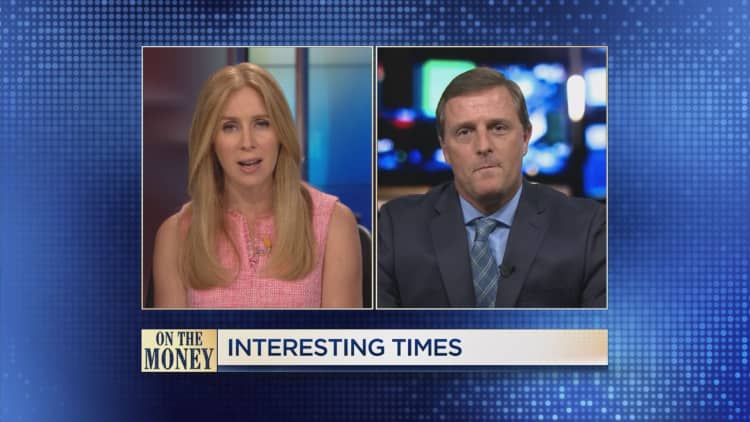
The Federal Reserve has kept interest rates steady for now, a move that's likely to be cheered by President Donald Trump.
However, Fed Chairman Jerome Powell at times has suggested there may be more rate hikes to come, and many Americans are just fine with that, a new poll has found.
Recent signs of rising inflation, which pushed the Fed into hiking rates beginning in 2015, aren't necessarily bad, investors said.
Rising rates are generally considered an indication that the economy is doing well and pave the way for pay raises and a better return on savings, despite increased borrowing costs.
Forty-four percent of those polled by E-Trade said "a better return on my savings" was the most important effect of rising interest rates, while 37 percent said it was making "borrowing money more expensive."
People who have savings "are smiling from ear-to-ear every time the Fed raises rates," said Greg McBride, chief financial analyst at Bankrate.com.

Only 9 percent of those surveyed were overly concerned about the variable interest rates on their credit cards, which generally rise in lockstep with the Fed's benchmark rate.
Although the Fed already raised the federal funds rate nine times in three years, those hikes largely hadn't trickled down to consumers in the form of better savings yields until recently.
Savings yields move higher
As a result of the increase in interest rates, savings rates — the annual percentage yield banks pay consumers on their money — are now as high as 2.4 percent, up from 0.1 percent, on average, before the Federal Reserve started increasing its benchmark rate in 2015. (You can earn even more with certificates of deposit.)
In 2018, high-yielding savings accounts even outperformed the stock market for the first time in over a decade.
With an annual percentage yield of 2.4 percent, a $10,000 deposit earns $240 after one year. Meanwhile, investors would have lost money in the stock market over the same time period after the and Dow Jones Industrial Average ended last year by finishing in the red.
"Cash is going to continue to be an important contributor to a portfolio delivering returns that preserve purchasing power," McBride said.
According to the most recent projections from individual members of the policymaking Federal Open Market Committee, there are two rate hikes likely later this year and perhaps one more after that.
E-Trade polled nearly 1,000 active investors earlier in January who have at least $10,000 in an online brokerage account.
More from Personal Finance:
Good news for borrowers: There are new ways to improve your credit score
For the first time in a decade, savings account outperformed the stock market
Here's how Fed rate hike will impact you


